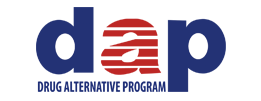
Recovering from addiction is an ongoing process in which you face many challenges. Even once you’re in recovery and ready to get your life back on track, financial struggles are not easy to put behind you. Addiction may have taken a toll on your finances that left you with bad credit, debt, and a spotty employment history. With a little time and following these steps, you can overcome these financial hurdles and get back on your feet.
Step 1 – Money Management
You can’t move forward unless you know exactly what your financial situation looks like and some basics of money management. If you were young or didn’t complete much education when you started using drugs or alcohol, you never have learned basic money management. There are great programs through many community colleges where you can learn these skills.
Even if you were financially stable before addiction took its toll, addiction is inherently expensive. This cost can grow exponentially because the longer someone is addicted, the more they must use to get the same effect. Start by taking a close look at your current financial situation, including any assets, debts, and expenses. This process isn’t easy, which is why PsychCentral suggests doing this with a friend or family member’s help so you’re less likely to relapse from the emotional strain.
Once you have a clear picture of your financial situation, create a budget so you know exactly where your money is going. A crucial part of this process is separating what you truly need from what you want. When you’re addicted, you likely have a mindset geared toward instant gratification, which in the absence of substance abuse you may easily slip into fulfilling in other ways. Keeping track of expenses and staying within your budget helps you avoid spending where you shouldn’t.
Step 2 – Pay Off Debt and Rebuild Credit
These steps work together because getting out of debt is a crucial part of rebuilding credit. Before tackling some simple steps to paying off debt, take a critical look at your spending habits. Addiction is likely what got you into debt in the first place, but there may be other factors that continue to affect your debt. This analysis is about your money mindset and figuring out what weaknesses you have when it comes to spending. It’s a good idea to reward yourself for good habits and sticking to your budget, but make sure not to undo all your hard work. If you love adventure, maybe instead of taking a trip, reward yourself by going on a hike or other “daycation” near where you live.
If your credit has taken a hit, rebuilding it is essential to a better financial future. Beginning to pay off debt, including always paying at least the minimum due and making payments on time, is a great first step. There are other strategical ways to reduce debt faster, such as paying your biggest credit balances first and becoming an authorized user on a family member’s credit.
Step 3 – Overcoming Your Employment History
When you’re trying to move forward after substance abuse, your employment history may be less than ideal. Gaps in employment don’t look good when you’re searching for a job, but that doesn’t mean the situation is out of your control. Many treatment centers offer programs on how to reenter the workforce after addiction, or they can refer you to local classes, so be sure to take advantage of all available resources. Stay positive and remember that just because you’re in recovery doesn’t mean a good job isn’t out there for you. CNBC reports that more and more employers are now willing to give someone who is recovering from addiction a second chance.
Getting back on your feet when recovering from addiction doesn’t happen overnight. You must start by taking a hard look at where you’ve been, learning from money mistakes, and understanding how to better manage money moving forward. With a little time and commitment to these steps, you’ll be well on your way to financial success.
